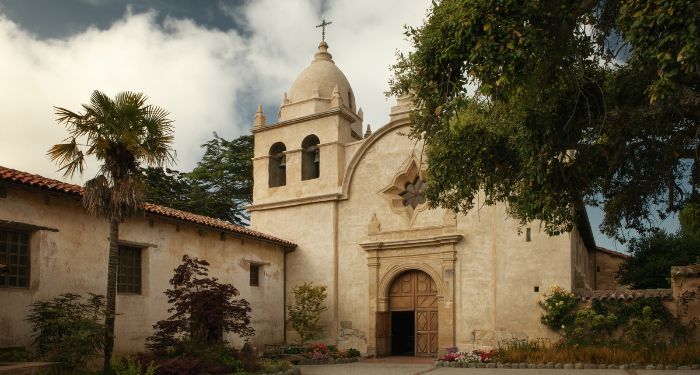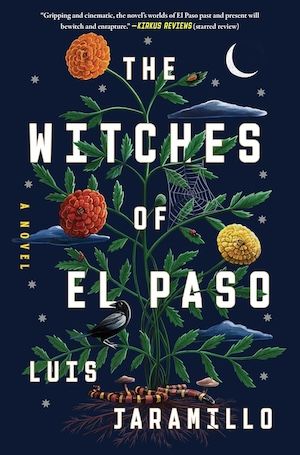
A Multigenerational Story of Family Secrets and Supernatural Nuns
As a new parent, not a lot of books are holding my attention these days. But reading Luis Jaramillo’s novel, I became completely engrossed. I wanted to speed through the mysteries (yes, more than one mystery) within the plot. And at the same time, I wanted to saunter through the vivid world of El Paso described in the book and to spend as much time as possible in the beautiful prose on the page.

The Witches of El Paso by Luis Jaramillo
In the present day, Marta is a middle-aged woman deeply entrenched in the care of others. She’s trying to win a case against a boss who sexually harasses his workers and keep her legal aid nonprofit from going bankrupt. She’s raising two young sons and trying to find the spark in her marriage. And after a mysterious kitchen fire, she’s taking care of her great aunt Nena and contemplating putting her in an assisted living facility. Small things in her life start to feel strange. Headaches. Intense emotions. Ladybugs that appear everywhere.
In 1943, Nena is also consumed by care work. Her sisters have jobs while the men of El Paso are away fighting in World War II, and Nena stays at home taking care of their two babies. She longs for a different life, one with both adventure and self-understanding. When a nun appears, Nena feels like her prayer might have been answered. She follows the nun back in time to 1792 when El Paso is part of New Spain. The nun belongs to a convent full of sisters who have strange powers like Nena.
The story alternates between both characters and timelines as each woman learns to inhabit and control her special abilities. Nena must learn more about her magic from the nuns before she can open a portal and return home, but she begins to suspect they are taking advantage of her. And she starts putting down roots that make the idea of leaving feel close to impossible. Marta doesn’t believe her great aunt about the magic, until it is undeniable. And once she does believe, she must decide what she’s willing to risk to help Nena on a quest to return to the baby she lost to the past.
This book is a triple threat, with expert plotting, ethereal language, and world-building that brought El Paso alive in three different centuries. One minute, I’d be turning pages to find out what happened to Nena when smallpox came to the convent. The next, I’d be grabbing a pen to underline quotations, like: “Family stories teach us how to live. Family secrets teach us to kill parts of ourselves.” After putting the book down, I’d still be thinking about Marta and Nena, thinking about how easy it is to lose yourself inside the care of others, and the way the magic in the story always came at a cost.
I’m still thinking about it. And if you read The Witches of El Paso—which you should—I bet you will spend a lot of time thinking about these big questions and this beautiful story, too.
If you found this post online and want reading recommendations in your inbox, sign up for Read This Book here.











